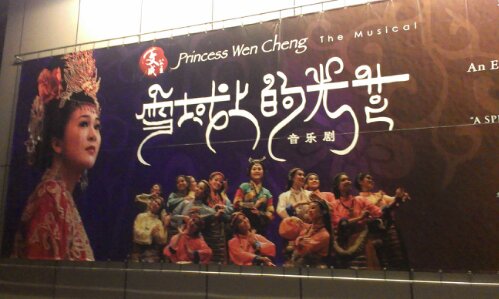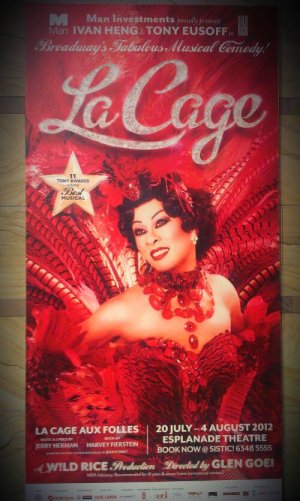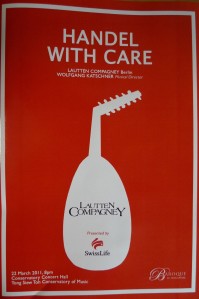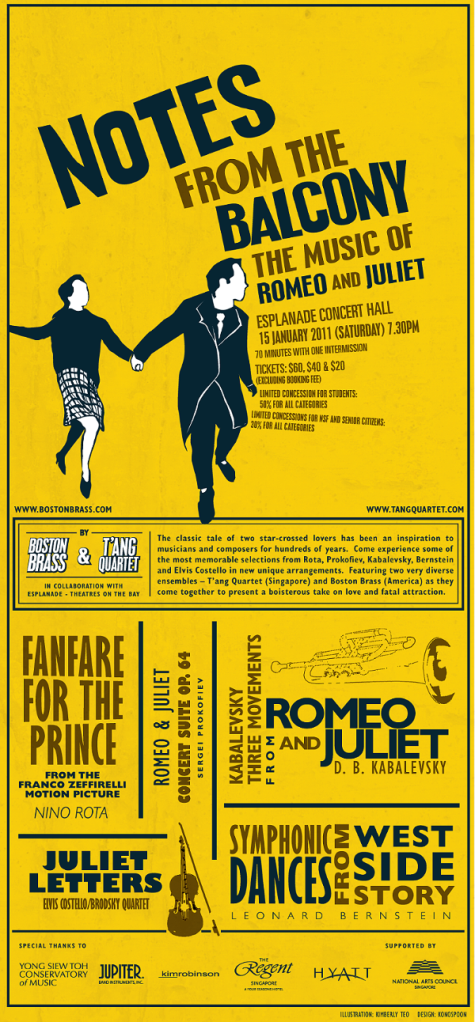If there is an annual event that I try not to miss, it’s the Singapore International Piano Festival. Now into its 18th year, this festival showcases 4 or 5 exceptional pianists annually. If I’m in town, every year I’ll ask yj and we’ll try to go for at least one recital. Although I wish I can go for all of them!
This year, I went for Arnaldo Cohen’s recital, together with yj & pl, both pianists. The first thing that attracted me to the recital was the pianist’s South American roots (Cohen was born in Brazil) and selection of Brazilian pieces (Nepomuceno, Nazareth et al) in the programme. But the key draw of the programme was Bach-Busoni’s Chaconne in D and Chopin’s 4 Scherzi.
Bach’s Chaconne in D (taken from his Partita) was originally written for the solo violin. In the hands of Italian composer-transcriber, Ferruccio Busoni, the Chaconne became a colossal piano work weighted with the sound of futuristic vision, reminiscent of Beethoven’s Hammerklavier sonata. Some say Busoni’s transcription is a polluted version of Bach’s original which is often described as being pure. But I think of purity as being distilled from complex profundity, and perhaps what Busoni did was really a matter of ‘reverse engineering’. The original by Bach was difficult enough, and Busoni’s version magnifies the difficulty even more. In Cohen’s hands, the work was projected with sonorous boldness that left the audience wanting more.
Chopin’s 4 Scherzi – perennial concert favourites – were also a delight to listen to. Having studied the Scherzo No. 2 score before, I found myself wondering during the performance – “Now, why didn’t I think of that?” Indeed, that was the draw of Cohen’s performance: quite apart from the taken-for-granted agility and articulation required of any performer, Cohen produces big sounds filled with thoughtful depth, warmth and wonderful phrasing that inspires and endears. Instead of just reproducing notes, this is certainly a pianist who knew what he was playing. And one of the most serendipitous things about going to a recital is learning something new, even on a time and tested piece.
The selection of pieces by Brazilian composers is refreshing as this is not quite the usual repertoire of the Singapore piano recital scene. Post-concert, pl overheard a member of the audience asking Cohen where to get the music scores and Cohen replied the music library in Brazil *lol*. In case anyone is interested, I did manage to track down Ernesto Nazareth’s Brazilian Tango scores on Amazon (the dotcom, not the rainforest) some time back.
Cohen dove into each piece right away with little deliberation. But the musical output itself is reflective of the pianist’s contemplation and insight. As a performer, he embraced the audience and further enticed with four encores. All in all, it was an exceptional night that inspired the crowd into enthusiastic hoots and frenzied applause. Let’s hope Mr Cohen visits again!



 he first was a free lunchtime recital “Good Music This Lunch”, featuring cellist Wendy Law and members of the Hong Kong Sinfonietta. The venue is the Agnes B Cinema at Hong Kong Arts Centre. An interesting venue for a recital as I thought this was an art house cinema. I managed to find my way there from the MTR, zigzagging through throngs of people who were heading towards the nearby Immigration building and mainland tourists posing for photos with – of all landmarks in Hong Kong – Revenue Tower (i.e. tax authority building).
he first was a free lunchtime recital “Good Music This Lunch”, featuring cellist Wendy Law and members of the Hong Kong Sinfonietta. The venue is the Agnes B Cinema at Hong Kong Arts Centre. An interesting venue for a recital as I thought this was an art house cinema. I managed to find my way there from the MTR, zigzagging through throngs of people who were heading towards the nearby Immigration building and mainland tourists posing for photos with – of all landmarks in Hong Kong – Revenue Tower (i.e. tax authority building).
